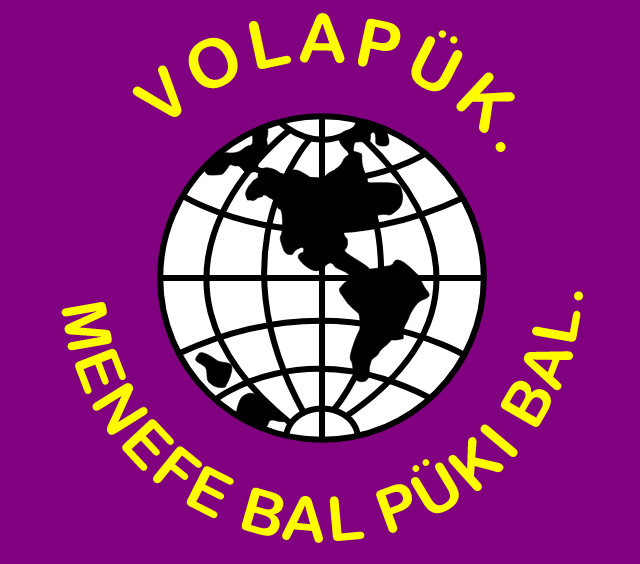I am a native English speaker and recently started learning Esperanto a few weeks ago. I was inspired by a TED Talk that explained how Esperanto is an excellent first choice for those interested in acquiring multiple languages.
Due to its relative simplicity, learning Esperanto effectively prepares your brain for learning additional languages, making the process quicker and smoother.
So how many here speak different languages and what are they?
Man, TED talks suck.
That guy scammed you into learning a conlang with the excuse that it does something that all languages do and nobody is even telling you.
Just learn a romance language if you want access to a family of concepts that will carry over easily, friend. It comes with the bonus of being able to talk to people.
Anyway, I’m often light on personal info here, but I’m in a bilingual territory, learned English as a kid, the basics of a couple others through life stuff and I get a few more through osmosis because all languages do that Esperanto trick.
All languages do that, yes, but as Esperanto is easier than the others, it makes it a very good first language.
I learnt English at school for almost 10 years without being able to have a discussion. I learnt Esperanto in a few months, actually used it to communicate with foreigners, and a few months after I was able to communicate in English. My English is still far from perfect, but without Esperanto I wouldn’t even be here.
That seems more like a teaching methodology problem than a target language problem. Honestly, I don’t know where you are, but the way English is taught in schools in many regions is terrible, so that doesn’t tell you too much about the relative merits of learning Esperanto.
But hey, if you got it out of your system that’s good for you. I don’t begrudge anybody learning a language, even if it’s a made up one. I just wouldn’t want to support the idea that monolinguals should go out of their way to tackle conlangs, or Esperanto specifically. Go learn something you’re curious and motivated about.
Yes, you’re right that it’s a methodology problem (I’m in France), and even more right when you say that motivation is the key. It’s easier to learn a harder language if you’re motivated than an easier one but without motivation.
However, because of its regularity, Esperanto is objectively easier than all natural languages. And it’s a thing to take into account.
Well here in the US, and in the state I’m in, not a lot of bilingual needs. I know Spanish is pretty popular in a lot of places, and I’ll eventually learn it. But since I’m 55 years old, esperanto seemed more fun. And it’s got an interesting history. Thanks!
Native German, fluent English, conversational Norwegian (and by extension passable Swedish; and I read 100% Danish but suck at speaking/listening comprehension), passable Dutch, Luxembourgish and French, and basic Chinese (mandarin).
Edit: And I passed Latin in high school (grades 5 through 10), so I do manage to read inscriptions in old buildings and churches, and pick up written Italian and Spanish because of it.
Whoa! I’m having a tough enough time just learning Esperanto, which is supposed to be easy. But bruh, you are a whole other level. Awesome!
Vi devus rigardi Incubus, kun William Shatner! Gxi estas tre stranga.
Ha, I was going to ask if OP had seen Incubus, but I guess you beat me to it.
Dankon, amiko!
Native Arabic, fluent English, less fluent Japanese, bad Chinese.
Ojibway … or a dialect of Ojibway in northern Ontario. It’s my first language I spoke for about the first four years of my life and dominate language I spoke until I was about 13, then I started actually speaking English all the time starting at about 18. It took me years to get used to full on English conversation but now I’m comfortable in it. I still remember my Indigenous language but I seldom use it because I have no one to talk to any more. I don’t live close to my family or friends who speak it and even in my home community and group, the language is dying out. I think I’m pretty much the last generation who fully spoke the language because everyone after me speaks prominently English and Ojibway second (if they speak it at all).
So I can safely say that Ojibway is my first language and English is my second.
Looking into the history of Ojibway right now because of your comment. Thank you!
My native language is romanian, but I also know english
I technically know moldovan too, but i dont think it counts
Why wouldn’t that count?
Russian at a Native level, because my parents speak it (so I can barely read)
German at a Native level, because I’ve been living in Germany the past 20 years.
English at a C2 level, just from school and because all my online activity and all my entertainment is in english.
And some French and Latin back from school, but learning those was horrible and I’d like to forget as much as I can.
I absolutely hate learning languages and hope that I will never have to do it again. But the reality of living in Europe is just that you never know whether you’ll wake up one day and decide to move to the Netherlands or Denmark because there are great jobs there 🤷
Arabic and English. I’m learning esperanto, Ukrainian and Latin all at the same time (Latin is most important and Esperanto is least)
I’m also learning a very little amount of Hebrew since it’s similar to Arabic in a lot of ways. Like Scottish and English.
Dankon, amiko!
I’m proficient at Portuguese, Italian, and written English. I can also understand some Latin and German. Plus a few Romance languages through mutual intelligibility.
Due to its relative simplicity, learning Esperanto effectively prepares your brain for learning additional languages, making the process quicker and smoother.
Ah, the propaedeutic effect? I think that Esperanto shows the “guts” of the grammar faster than other languages do, and that helps learning languages with similar features.
Ah, the propaedeutic effect? I think that Esperanto shows the “guts” of the grammar faster than other languages do, and that helps learning languages with similar features.
Yep, that’s what they say.
Hindi Urdu Gujrati Arabic (only reading) Russian (only reading)
Cantonese, Mandarin and English. This is the basic languages for Hongkongers (which I am) and I refer to this as 2.5-lingual, because Cantonese and Mandarin are both Chinese.
Dialect is their own language. Don’t sell yourself short, because i can’t understand a word of hakka despite knowing mandarin and a little bit of cantonese and hokkien.
Chinese and Japanese. Learned some others but forgot sadly.
Oy, those are tough ones for us English speakers.
In my personal experience Chinese is only hard in the beginning. It’s an analytic language which in my opinion requires zero thought (sarcastic) compared to Japanese which is very synthetic. Japanese on the other hand is hard as hell for me. I pretty much approach is from a Chinese standpoint and it’s a challenge.
https://en.wikipedia.org/wiki/Analytic_language?wprov=sfti1#List_of_analytic_languages
日文,Chinese,英語 この三個言語を話すのは有用,but 有時我的brainがバラバラに使いがち。
French is my native tongue, I can converse in Creole and have a convincing accent because of my family;
I learned English, Spanish, Italian at school (in that order), few words of German later on my own, learned some Swedish vocabulary on Duolingo, Icelandic basics for when I visited, I can only read and pronounce Cyrillic without understanding it.
I’m interested in Korean lately, but haven’t even started
French native, Esperanto and English conversational. Good notions of Italian. Notions of German (the language I’m trying to learn), Luxembourgish and Norwegian. I learnt but forgot Latin, Ancient Greek and Biblical Hebrew (I still can read them if I have a lot of time and a good dictionary).
Dankon, amiko!
Nedankinde :-)
Arabic, English, some German, and can read / write Syriac Aramaic (Mostly use it to write Garshuni).
I can very vaguely understand the Syriac script. How similar is it to Arabic? I assume Aramaic and Hebrew are pairs and so are Arabic and Syriac.
You can read some words or full sentences sometimes, but some letters like taw (taa’) ت ܬ, ‘ayn ع ܥ, het (haa’) ح ܚ, and shin (sheen) ش ܫ are impossible to guess without checking out the alphabet first. The madnhaya script is closer to Arabic than the Estrangela script (which you’re probably seeing on your device).
Instead of the Arabic way of distinguishing similar letters by using dots, Syriac adds fangs or lines to change the “rasm” of the letter except for dal and raa’ which use a dot below and one above, respectively. I used to confuse waw ܘ, qaf ܩ, and mim ܡ a lot at first.
It’s a very interesting script, i’ve always wanted to learn it. thanks for the info :D
Especially since i recognize a lot (maybe not always exactly tho) of the characters, like how Tau looks like ط or how waw vaguely looks like و
NP. It’s really interesting beyond it’s similarities to Arabic too; the dots in Syriac are used to make letters hard or soft, which makes a lot more sense than using the same rasm with a different number of dots to make a completely different sound.
The language also often explains the little weird differences between levantine Arabic and MSA or other dialects, like the word “طاقة” which refers to small round windows and “بوبو” which is used to refer to an infant.
The equivalent to Arabic ط is “tet”: ܛ, but in some fonts of Syriac “taw” ܬ looks like a mirrored ܛ.










